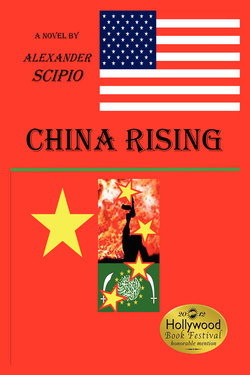Читать книгу China Rising - Alexander Scipio - Страница 8
На сайте Литреса книга снята с продажи.
5
ОглавлениеChicago
Wednesday, 10 April, 20:00 hours GMT (15:00 Local)
Tim Lowe had been an Account Representative for Boeing for nearly his entire 30-year career in business, following graduation from the USAF Academy and a stint in the Air Force in the late-1970s as a cargo pilot. Young dreams of flying high-performance jets against adversaries had run up against an inability to really stick a hot landing and, of course, the end of the Vietnam War and no adversaries against whom to fly and fight. Consequently he had driven C-141 Lockheed Starlifters around the Pacific route for his five-year post-Academy commitment.
Based out of the now-closed Norton Air Force Base he had studied and completed assignments as a Graduate Student at the University of California, Riverside, as he crossed and re-crossed the empty oceans thousands of feet below. When on the ground he attended classes. After four years he achieved an MBA to add to his Academy degree in Aeronautical Engineering. Following his release from active duty he had headed to Boeing as a salesman.
With all his multi-engine time, he’d had lots of offers from airlines, but he wanted more than just driving an airborne bus full of businessmen and tourists around the country.
Tim had been successful as an aircraft salesman for Boeing; not a star, but working his way there. Then he’d gotten a call in the late 1990s from an old roommate who seemed to have the ear of some decision makers in the People’s Republic of China. They’d wanted a half-dozen 747s and a dozen mid-range jets. He’d closed the deal, the largest for Boeing thus far from the PRC, and promptly been promoted to the new position of Account Executive for China.
Late last year China had ordered another several billion dollars worth of Boeing aircraft through him, this time nearly all 737 short-haul aircraft. This had been mentioned as a precursor to a far larger order, one now about to come to fruition.
When the enormous size of this deal first was mentioned, he’d nodded, then gone to his boss to ask about production capacity – could he sell this order? What would it do to other customers?
“Our job is to close business,” the Sales Vice President had reminded Lowe gruffly. “It’s manufacturing’s job to make the planes. Go close the deal.”
Relaxing after a late lunch, watching Chicago work in the afternoon sun, feet up on the desk, he awaited the final confirmation of that order.
His phone rang. “Lowe,” he answered, picking it up. Listening, he nodded and looked over to the screen of his PC. He navigated the mouse over a new email, clicked, and saw that he’d done just what his boss had told him to do.
“Yes, Sir,” he said simply. “Thank you. I’ll process this and get going on the remainder of the paperwork,” and he hung up the phone. He sat still a moment longer, looking out across the view. Finally, he said to himself, “Cool.” He downloaded, saved and then printed the email, and walked over to the printer to pick it up. Admiring it, he walked it into his boss’s office.
Firm orders for 250 jets of various sizes and ranges, and options for 600 more. The single largest order in Boeing’s history, over twelve billion dollars for the firm-order portion, over ninety-five billion for the option, should it be exercised in-full.
“Cool,” he repeated, thinking of the size of the commission check.
Down the street from the Boeing corporate offices sat the Chicago Mercantile Exchange, the “Merc.” As Tim Lowe read his emailed order to his boss up the street at Boeing, a sudden flurry of trading at the Merc spiked the prices of basic livestock and grain purchases, for 30-, 90- and 120-day futures. Enough foodstuffs were purchased to feed a small country or two.
A few senior traders muttered to one another, then went on about their business, trying to figure out how best to profit from this run-up. It wasn’t explained by any weather of which they were aware, nor shipping, nor opposing belligerents anywhere they could think of.
The traders made their moves, hoping their gut instincts were right.
Across the country in Texas, emailed orders suddenly began filling the in-box of Bill Dyer, head of a large oil technology and equipment manufacturer. The orders were for larger quantities than he had ever seen of all types of oil field equipment, from derricks to drilling pipe to boring bits. Delivery was to China.
Dyer began reading the arriving emails and quickly found that he could not keep up. Once they all arrived, he sorted and forwarded them to the various units of his organization. Not sure he could handle this much business, he also picked up the telephone and called an old friend – and his oldest competitor. “I need to share some wealth,” he said when he call was answered.
